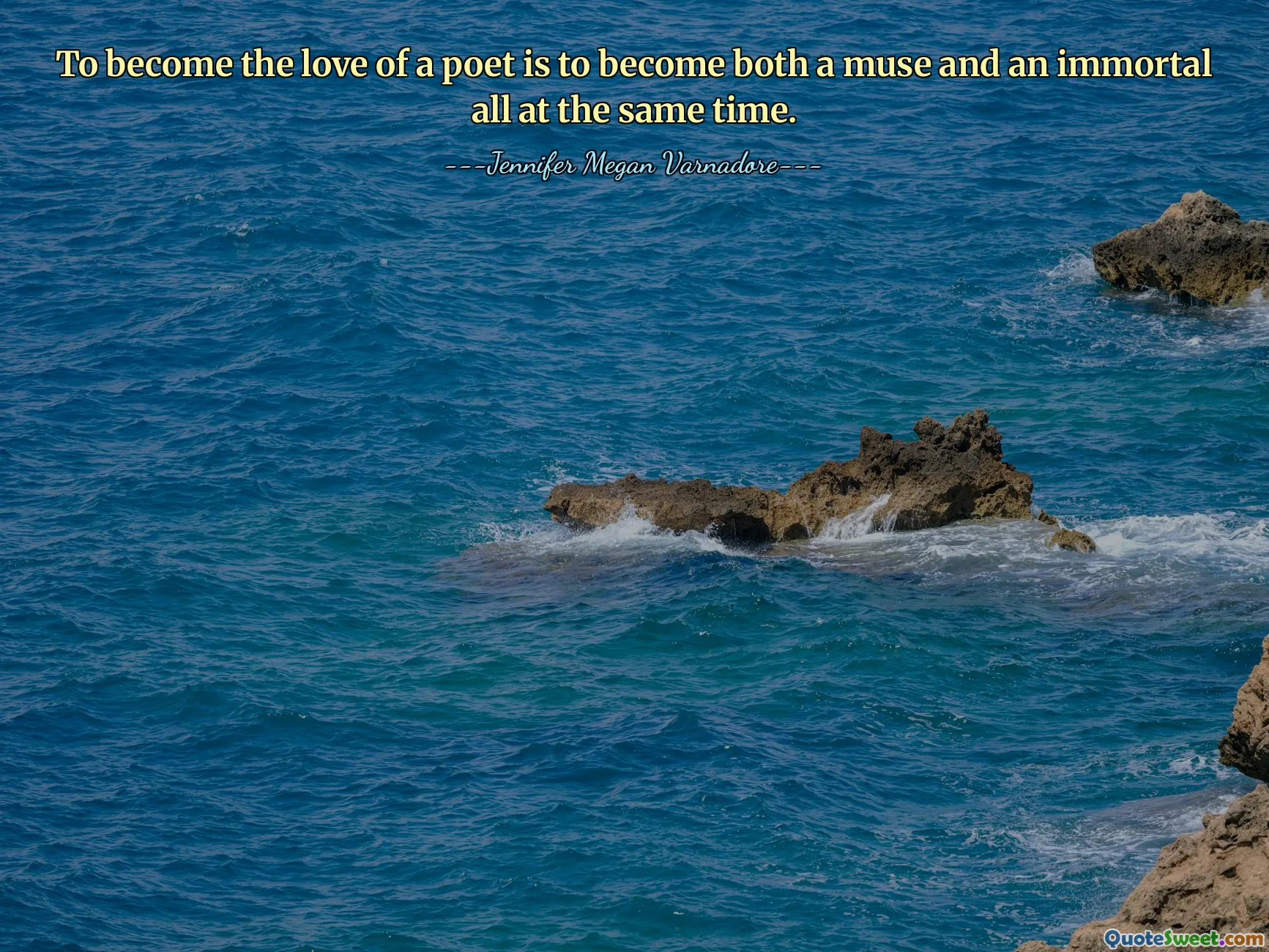
To become the love of a poet is to become both a muse and an immortal all at the same time.
This quote explores the profound interconnectedness between love and the arts—particularly poetry. When someone becomes the beloved of a poet, they transcend ordinary love, acquiring a role that influences creation itself. The muse, historically, is an inspiration that sparks poetic vision and creativity; by becoming the muse, one embodies a source of endless inspiration that fuels artistic expression. At the same time, being associated with a poet elevates one's presence to something enduring—'immortal'—because poetry can preserve feelings, moments, and identities across time. The idea suggests that true love entails a transformation, where the beloved becomes woven into the fabric of artistic legacy, transcending temporal bounds. This reflects on how human relationships can shape not only personal experiences but also cultural and artistic histories. It emphasizes that love, when deeply rooted in admiration and inspiration, can grant a form of immortality—since poetic works memorialize feelings and persons forever. Moreover, it hints at the power of art to immortalize love, creating a bridge between fleeting moments and everlasting remembrance. Such a perspective invites us to consider how genuine love and admiration are potent forces; they possess the capacity to elevate individuals into symbols of inspiration and timelessness. Ultimately, the quote encapsulates the idea that love, when intertwined with artistic admiration, elevates both the beloved and the lover's legacy, ensuring that their shared essence persists through the ages, immortalized in poetry and memory.











